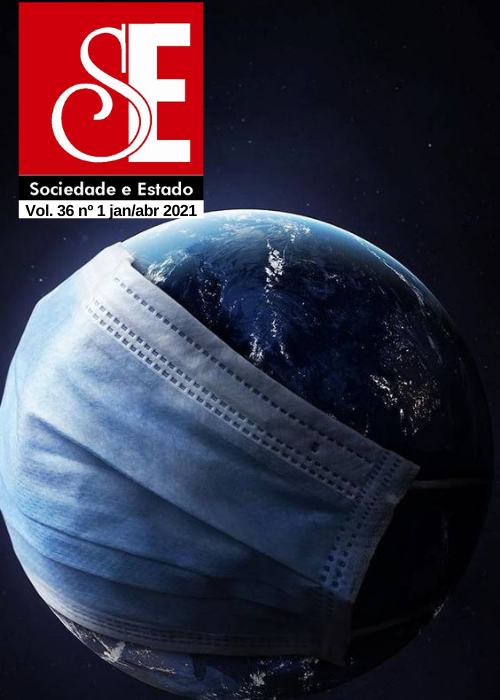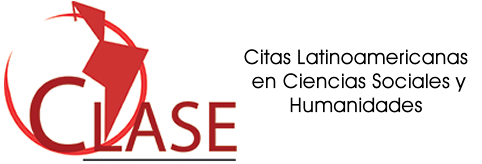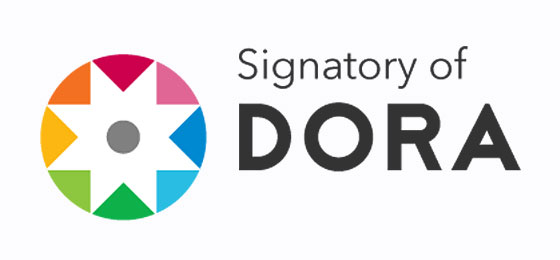Between racializations: Oliver C. Cox and the sociology
DOI:
https://doi.org/10.1590/s0102-6992-202136010014Keywords:
Oliver Cox; Race relations; Racialization; Sociology of intellectuals; CaribbeanAbstract
Oliver Cromwell Cox was a black Trinidadian sociologist that spent most of his personal and intellectual life in the United States. In this country, the heterodox character of Oliver Cox’s critiques to the sociology of his time set over his work a decades long silence. In recent times, however, the growing interest in his work has brought up discussions about its foundations. This text focuses on the author's initial trajectory, a period that dates from his birth in the Caribbean, in 1901, until the publication of his magnum opus Caste, class and race, in 1948. It is argued that this period is primarily marked by a circulation of the author through different grammars of racialization, which in turn were decisive for the deconstructionist impetus that marked his towards the social sciences. It is also argued that the emphasis on this aspect of Cox's trajectory, through a critical and systemic engagement with race, offers an important contribution to the so-called externalist studies of Afrodiasporic intellectuals in Sociology.
Downloads
References
BECKER, H. The Chicago School, so-called. Qualitative Sociology, v. 22, n. 1, 1999.
BERNADINO-COSTA, J. A prece de Frantz Fanon: oh, meu corpo, faça sempre de mim um homem que questiona! Civitas - Revista de Ciências Sociais, v. 16, n. 3, p. 504-521, 2016.
BHAMBRA, G. Sociology and postcolonialism: another “missing” revolution? Sociology, v. 41, n. 5, p. 871-884, 2007.
BLIZZARD JR., S. W. Caste, class, and race: a study in social dynamics. American Sociological Review, v. 13, n. 3, 1948.
BORDA, E. W. B. Prisma de formação caribenha: a produção social de uma consciência oposicional em C. L. R. James e Oliver C. Cox. Dissertação (Mestrado) - Universidade Federal de São Carlos, São Carlos, SP, 2018.
______. Ecos de Fanon em Florestan Fernandes. Florestan, Ano I, p. 23-32, Maio 2014.
BOWSER, B P. The contribution of blacks to sociological knowledge: a problem of theory and role to 1950. Phylon, V. 42, n. 2, 1981.
BUHLE, P. The artist as revolutionary. New York: Verso, 1988.
CELARENT, B. Caste, class, and race by Oliver Cromwell Cox. American Journal of Sociology. v. 115, n. 5, p. 1664-1669, 2010.
CHEESEBORO, A. Conflict and continuity: E. Franklin Frazier, Oliver C. Cox and the Chicago School of Sociology. Journal of the Illinois State Historical Society, v. 92, n. 2, “African Americans in Illinois”, Summer 1999.
COULON, A. A Escola de Chicago. Campinas, SP: Papirus, 1995.
COX, O C. Caste, class and race: a study in social dynamics. New York: Doubleday and Company, 1948.
CUDJOE, S. C. L. R. James y la tradición intelectual de Trinidad y Tobago, o no se estudia Shakespeare debajo de un árbol de mango. New Left Review, v. 25, 2004.
DAVIS, A. Mystical sociology. The Journal of Negro Education, v. 17, n. 2, Spring 1948.
DAVIS, K.; MOORE, W. Alguns princípios de estratificação. Estrutura de classes e estratificação social. Rio de Janeiro: Zahar, 1969.
DEEGAN, Mary Jo. Chicago School of race relations. In: Encyclopedia of race, ethnicity and society. Los Angeles; London: Sage Publications, 2008a.
______. Hull House School of race relations. In: Encyclopedia of race, ethnicity and society. Los Angeles; London: Sage Publications, 2008b.
______. Oliver C. Cox and the Chicago School of race relations, 1882-1960. In: HUNTER, H. The sociology of Oliver C. Cox: new perspectives. Bingley, UK: Emerald Publishing, 2000.
DU BOIS, W. E. B. As almas da gente negra. São Paulo: Lacerda, 1999.
DUMONT, L. Homo hierarchicus: the caste system and its implications. Chicago, IL: The University of Chicago Press, 1980.
EMMETT, R. B. Frank H. Knight, Max Weber, Chicago Economics, and institutionalism. In: ______. Max Weber studies: Weber and economics, Beiheft 1, 2006.
FANON, F. Pele negra, máscaras brancas. Salvador: Editora UFBA, 2008.
FAUSTINO, D. Frantz Fanon: um revolucionário particularmente negro. São Paulo: Ciclo Contínuo Editorial, 2018.
______. Por que Fanon, por que agora?: Frantz Fanon e os fanonismos no Brasil. Tese (Doutorado em Sociologia) - Programa de Pós-Graduação em Sociologia, Universidade Federal de São Carlos, São Carlos, SP, 2015.
GILROY, P. O Atlântico Negro. São Paulo: Editora 34, 2012.
GROSSMAN, J R. Land of Hope: Chicago, black southerners, and the great migration. Chicago, IL: University of Chicago Press, 1989.
GUIMARÃES, A. S. A. A recepção de Fanon no Brasil e a identidade negra. Novos Estudos (Cebrap), v. 81, p. 99-114, Jul. 2008.
HALL, Stuart. The fateful triangle: race, ethnicity, nation. Cambridge, MA; London: Harvard University Press, 2017a.
______. Familiar stranger: a life between two islands. Durhan, UK: Duke University Press, 2017b.
______. Negociando identidades caribeñas. In: ______. Sin garantías: trayectorias y problemáticas en estudios culturales. Popayán, CO: Envión editores, 2010.
______. Epilogue: through the prism of an intellectual life. In: ______. Culture, politics, race and diaspora. Kingston, JM: Ian Randle Publishers, 2007.
______. The Windrush issue: Postscript. Soundings, issue 10, p. 188-191, 1998.
HARVEY, Lee. The myths of the Chicago School. Quality and Quantity, v. 20, p. 191-217, 1986.
HIER, Sean P. The forgotten architect: Cox, Wallerstein and world-system theory. Race Class, v. 42, 2001.
______. Structures of orthodoxy and the sociological exclusion of Oliver C. Cox. In: HUNTER, H. The sociology of Oliver C. Cox: new perspectives. Bingley, UK: Emerald Publishing, 2000.
HILL, M. Caste, class, and race: a study in social dynamics. Social Forces, v. 27, n. 2, Dez. 1948.
HOETNIK, H. Race and color in the Caribbean. In: MINTZ, Sidney W.; PRICE, Sally. Caribbean contours. Baltimore, MD: John Hopkins University Press, 1985.
HUGHES, E. P. The literature of race and culture. Phylon, v. 9, n. 1, 1948.
HUNTER, H. M. The life and career of Oliver C. Cox. In: HUNTER, H.; ABRAHAM, S. Race, class and the world system. New York: Monthly Review Press, 1987.
______. Oliver C. Cox: a biographical sketch of his life and work. Phylon, v. 44, n. 4. p. 249-261, 1983.
JAMES, C . L. R. The class basis of the race question in the United States. New Politics, n. 60, v. XV-4, Winter 2016. Disponível em: <http://newpol.org/content/class-basis-race-question-united-states>
» http://newpol.org/content/class-basis-race-question-united-states
______. Os jacobinos negros: Toussaint Louverture e a Revolução de São Domingos. São Paulo: Boitempo, 2010.
______. Beyound a boundary. New York: Pantheon, 1983.
JOHNSON, Y. Oliver C. Cox and the Chicago School of Sociology: Its Influence on His Education, Marginalization, and Contemporary Effect. In: Journal of Black Studies, Vol. 35, No. 1, pp. 99-112. 2004.
KELLEY, R. D. G. But a local phase of a world problem: black history’s global vision, 1883-1950. The Journal of American History, v. 86, n. 3, “The nation and beyond: transnational perspectives on United States history: a special issue”, Dec. 1999.
KEYS, R. C. Society and sociology: the dynamics of black sociological negation. Phylon, v. 39, n. 1, 1978.
LAMMING, G. The pleasures of exile. Ann Arbor, MI: Michigan University Press, 1992.
LASLETT, B. Biography as historical sociology: the case of William Fielding Ogburn. Theory and Society, v. 20, n. 4, Ago. 1991.
MARTIN, E. P. The sociology of Oliver C. Cox: a systematic inquiry. Dissertação (Mestrada de Sociologia) - Atlanta University, Atlanta, GA, 1971.
MATTOS, Pablo. The silent hero: George Padmore, diáspora e pan-africanismo. Tese (Doutorado em História) - Programa de Pós-Graduação em História Social da Cultura, Pontifícia Universidade Católica do Rio de Janeiro, Rio de Janeiro, 2018.
MCAULEY, C. The mind of Oliver Cox. Notre Dame, IN: University of Notre Dame Press, 2004.
MCKEE, J. Sociology and the race problem: the failure of a perspective. Chicago, IL: The University of Illinois Press, 1993.
MONTAÑEZ PICO, Daniel. La teoría del sistema-mundo es negra y caribeña: capitalismo y racismo en el pensamiento crítico de Oliver Cox. Tabula Rasa, n.28, Bogotá, Jan.-Jun. 2018.
MORRIS, A. The scholar denied: W. E. B. Du Bois and the birth of modern sociology. Los Angeles, CA: University of California Press, 2015.
ORTIZ, Renato. Frantz Fanon: um itinerário político e intelectual. Contemporânea - Revista de Sociologia da UFSCar, v. 4, n. 2, p. 425-442, São Carlos,SP, Jul.-Dez 2014.
PABLITO, Marcello; ALFONSO, Daniel Angyalossy; PARKS, Letícia (Orgs.). A revolução e o negro. São Paulo: Iskra, 2019.
PARSONS, T. O sistema das sociedades modernas. São Paulo: Pioneira, 1974.
PINTO, Simone Rodrigues; BERNARDES, Aristinete. Identidades caribenhas: crioulização em Édouard Glissant. Sociedade e Estado, v. 34, n. 3, p. 637-660, 2019.
PONTES, H. Círculo de intelectuais e experiência social. Revista Brasileira de Ciências Sociais, v. 12, n. 34, 1997.
REDDOCK, Rhoda. Radical Caribbean social thought: race, class identity and the postcolonial nation. Current Sociology, v. 62, n. 4, p. 493-511, Jul. 2014.
SAPIRO, G. Le champ est-il national?: la théorie de la différenciation sociale au prisme de l’histoire globale. Actes de la Recherche en Sciences Sociales, n. 200, 2013.
SEGAL, D. Race and “colour” in pre-independence Trinidad and Tobago. In: Trinidad Ethnicity. London: The Macmilan Press, 1993.
SEGATO, R. Raça é signo. Série Antropologia. Brasília: UnB, 2005.
STANFIELD, J. The Cracked back door: foundations and black social scientists between the World Wars. The American Sociologist, v. 17, n. 4, 1982.
STEPHENS, M. A. Black transnationalism and the politics of national identity: West Indian intellectuals in Harlem in the age of War and Revolution. American Quarterly, v. 50, n. 3, 1998.
SWEEZY, P. Foreword. In: COX, Oliver C. Race, class and the world system. New York: Monthly Review Press, 1987.
THOMAS, Deborah A. Cox’s America: caste, race, and the problem of culture. Canadian Journal of Latin American and Caribbean Studies, v. 39, n. 3, p. 364-381, 2014.
WALLERSTEIN, I. Oliver C. Cox as world system analyst. In: HUNTER, H. The sociology of Oliver C. Cox: new perspectives. Bingley, UK: Emerald Publishing, 2000.
WINSTON, M. R. Through the back door: academic racism and the negro scholar in historical perspective. Dædalus, v. 100, v. 3, 1971.
WYNTER, S. Beyond the categories of the master conception: the counterdoctrine of Jamesian poiesis. In: JAMES, C. L. R. Caribbean. Durhan, UK: Duke University Press, 1992.
YELVINGTON, Kevin. Introduction. In: Trinidad Ethnicity. London: The Macmilan Press, 1993.
YOUNG JR., Alford A.; DESKINS JR., Donald R. Early traditions of African-american sociological thought. Annual Review of Sociology, v. 27, 2001.
Downloads
Published
How to Cite
Issue
Section
License
Copyright (c) 2021 Sociedade e Estado

This work is licensed under a Creative Commons Attribution-NonCommercial 4.0 International License.




.jpg)



















